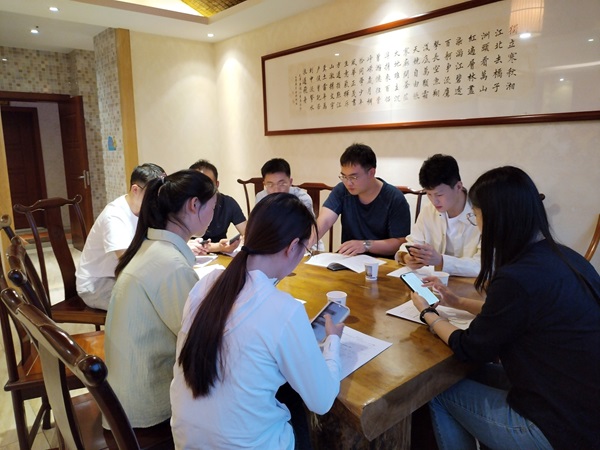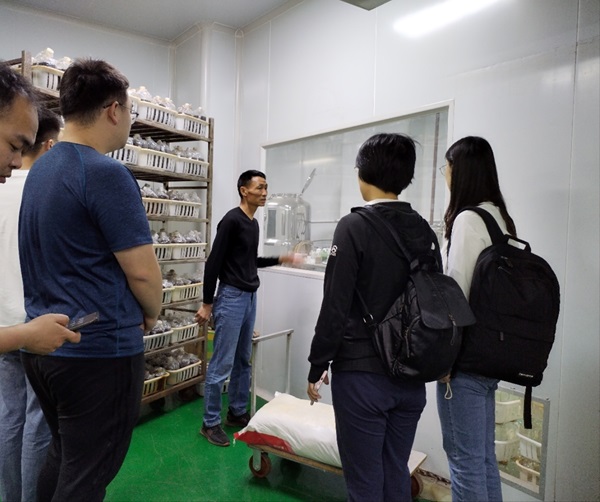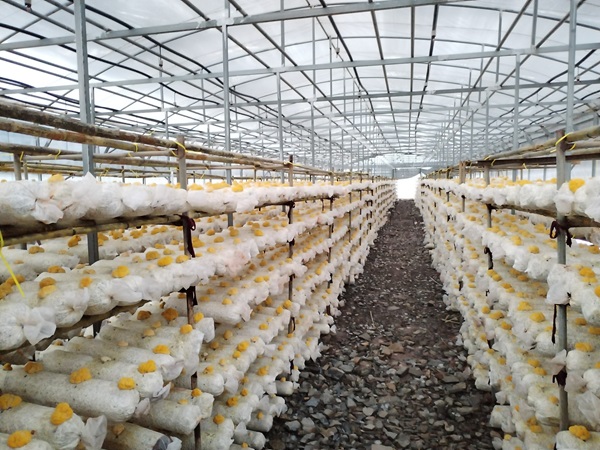《Revitalizing rural landscapes: An endeavor of transformation and hope》
Name:Xu Shidong
Nationality:China
University:Yunnan Agricultural University
Tutor: Lu Yao, Chen Ji
In the spring of 2023, an exciting opportunity presented itself before me – a chance to actively participate in a rural revitalization research initiative organized by our esteemed institution. The prospect of delving into the intricacies of rural development filled me with a sense of enthusiasm and anticipation. This endeavor allowed me to explore the dimensions of rural revitalization in a tangible way, igniting a passion within me to contribute meaningfully to the holistic growth of our rural areas.
The chosen backdrop for this transformative experience was Wuding County in Yunnan Province. This region, driven by agriculture and bolstered by fruit cultivation, herbal medicine production, and livestock and poultry breeding industries, epitomizes the rich tapestry of rural life. Moreover, the burgeoning tourism sector is emerging as a pillar of strength, showcasing the immense potential that lies within our rural landscapes.
A meticulous blueprint underpinned our research journey, ensuring a comprehensive exploration of the rural landscape. Our efforts began with in-depth planning, leading us to conduct field research across three administrative villages. Employing a tiered approach, we engaged in interviews at both county and village levels, offering a nuanced understanding of the sample towns and villages. This methodological precision laid the foundation for credible and representative findings.

Our research methodology hinged on a blend of quantitative and qualitative techniques, affording a well-rounded perspective. The selection of 30 households for formal sampling, complemented by 6 backup samples, underscored our commitment to accuracy. Employing a rigorous analytical framework, our aim was to provide an objective assessment, preserving the integrity of our findings.
Interacting with local governance and village committees upon our arrival in Wuding County proved enlightening. These interactions served as conduits of knowledge, revealing the policy measures in place and the efforts being made to invigorate rural life. Through insightful interviews and surveys, I had the privilege of connecting with the aspirations and concerns of local residents. Their narratives underscored the importance of skill training programs and the role of technology enterprises in enhancing agricultural processing capabilities and nurturing rural tourism.
Exploratory visits to farmlands and production bases unveiled the intricacies of challenges hindering agricultural development. The stark realities of limited land scale, variations in land quality, and deficiencies in product circulation channels became apparent. Moreover, the need for diverse industrial structures and innovative approaches in rural areas emerged as pivotal. Engaging with successful case studies like the Jin'er agricultural product cultivation and processing endeavors offered a roadmap towards leveraging technology, local resources, and supportive policies for rural revival.
Synthesizing the wealth of data and insights, I painstakingly crafted a comprehensive research report. This document not only highlighted the stumbling blocks faced by Wuding County but also prescribed actionable solutions to expedite the pace of rural revitalization. Addressing issues such as infrastructure gaps, business competitiveness, and financial constraints, my recommendations encompassed governmental policy revisions and financial support mechanisms. The overarching aim was to usher in infrastructure development, strengthen business entities, enhance agricultural cooperation frameworks, and curate tailored training initiatives for sustainable industrial progress.

Therefore, I have been awarded the title of "Excellent Researcher" by the School of Modern Agriculture at Peking University and the China Agricultural Policy Research Center at Peking University. The professors' evaluation is that he participated in the research process, diligently and rigorously completed the research work, and demonstrated excellent teamwork spirit. His outstanding research abilities provided excellent research data for the project.
This journey was an epiphany that underscored the multifaceted nature of rural revitalization. It brought to the fore the quintessential truth that rejuvenating rural communities necessitates the collective collaboration of governments, farmers, and societal stakeholders. This transformative experience as a student researcher impelled me to actively champion the national rural revitalization agenda. Armed with insights, I am committed to perpetually engage in practical initiatives that propel rural transformation. My academic background in rural development equips me to be a change catalyst, infusing innovation and contributing to the all-encompassing growth of our nation's rural heartlands.

In summation, the rural revitalization initiative in Wuding County was a testament to the potency of empathetic exploration and conscientious engagement. This experience unveiled not only the challenges of rural revitalization but also the dreams that kindle its flames. As torchbearers of change, it is our bounden duty to channel our knowledge, zeal, and dedication towards shaping a future that radiates prosperity for our rural communities. The journey has just begun, and I am resolute in my commitment to fostering transformation and hope in every corner of our nation's rural landscapes.





